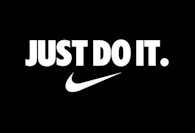If you say “can’t,” but you mean “won’t,” it’s not the same thing.
If you say “everybody,” but you mean “some people I know,” that’s different too.
The words matter.

When words are what you work with, you learn to choose them wisely. Finding the best way to convey a message means choosing words that can stand on their own—without the added benefit of facial expressions or the verbal inflections that people use to help them communicate.
It’s tempting to take shortcuts and use the tired, vague words that everyone else uses. And it’s easier if you just assume that your audience has the same world view and points of reference as you do—no need to clarify that pesky jargon or check your words for bias.
In advertising, the more times a consumer sees a slogan, the more likely they are to be influenced by the words—you know, quantity over quality. But the rest of the time, what you say and what words you use to say it are important, and they can determine the success (or failure) of the communication and even what happens next.
Ad campaigns succeed because they repeat their message over and over and over. But sometimes a message gets only one chance to be heard.
And when that’s the case, the words matter.


Be First to Comment